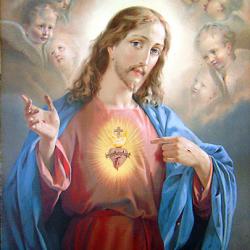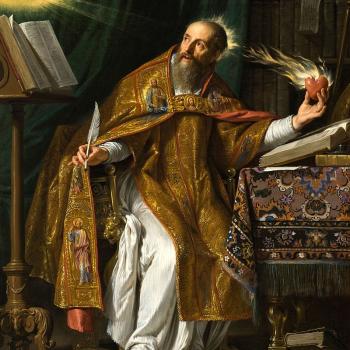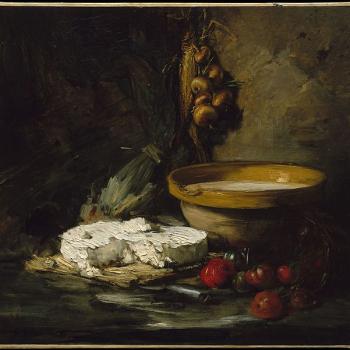Collecting Spiritual Quotes
What follows is going to be relatively long, so those who do not like reading long blogs are free to turn away. Or, you can print it off and hide it in your pantry with your cupcakes and return to it at your leisure.
-Larry Chapp, Gaudium et Spes 22
As I travel down the internet superhighway, I often find a rest stop. I pull over and gather up all the splashes of information, inspiration and imagination that I can find on the sidewalk. I then pack them in my mind, my heart and my soul and bring them with me so that I can distribute them to other people who are looking for the same things that I have just found. Profound insights into the human condition displayed in words assembled into well-crafted sentences combined with with other like sentences that form a collective whole paragraph full of chewable thoughts. And because my brain has been wired by a Catholic worldview, these are what I seek to find and ingest and have swirl around my cerebral biological and spiritual cortex.
Gathering a Broad Chorus of Catholic Thinkers
The diversity of thought within Catholic teaching, like variety within the strictures of sonnets, is one of its most beautiful features. It is nevertheless important to listen, as much as we can, to a broad chorus of Catholic thinkers. I have found great consolation in the fact that someone holier and smarter than myself has likely asked my questions already; my job is to find them and to listen, and then to make as many people as possible read block quotations about it. Sharon Kabel , OSB vs. UFO: Stanley Jaki and the Theology of Aliens (June 16, 2021) OnePeterFive
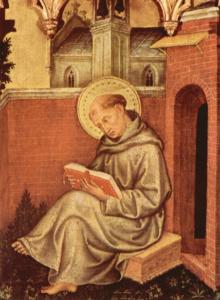
I reuse this quote again and again in my collection of quotes, musings, and sayings of wise and well written articulate Catholics, both then and now.
And so now I present to you some recent examples of these cyber songs of elegance and wisdom with the hope that they will give you something you can reflect on and expand your horizons with amusing intelligent thoughts. Because I pick a certain author’s thoughts from a certain website doesn’t mean I agree with everything they write or everything the website they write for publishes. I looked to make this chorus broad and wide and not just pick people from my tribe and school of thought. These folks are gathered here as well. So what we have here is a real diversity of Catholic thinkers, thinking thoughts I believe can get a thumbs up from any Catholic of any background, disposition or worldview. If we all make it to heaven will all have to all get along here or in purgatory. I think this advice from St. Ignatius should ring in our head whenever we read anybody and decide to write a critique of that person.
24
There are 24 sections in this collection of quotes. Including this one with text written directly from Wikipedia.
There are a total of 24 major and minor keys in Western tonal music, not counting enharmonic equivalents. Therefore, for collections of pieces written in each key, the number of pieces in such a collection; e.g., Chopin‘s 24 Preludes or this collection of a chorus of Catholic thinkers.
In Christian apocalyptic literature it represents the complete Church, being the sum of the 12 tribes of Israel and the 12 Apostles of the Lamb of God. For example, in The Book of Revelation: “Surrounding the throne were twenty-four other thrones, and seated on them were twenty-four elders. They were dressed in white and had crowns of gold on their heads.
Thinking Well of Others
It should be presupposed that every good Christian ought to be more eager to put a good interpretation on a neighbor’s statement than to condemn it. Further, if he cannot interpret it favorably, one should ask how the other means it. If that meaning is wrong, one should correct the person with love; and if this is not enough, one should search out every appropriate means through which, by understanding the statement in a good way, it may be saved (SE 22).
OK. Here We Go!
Absurdity of God
Something is absurd if it strikes us as surprising, counter-intuitive, and contrary to our expectations—prompting us to have an impulse to reject the idea out of hand.
But it turns out that the world contains many things that strike us as absurd and yet turn out to be true. This is the case regardless of one’s persuasions. One can be Christian, Jewish, Muslim, Atheist, or anything else, and the world still contains a lot of strange, “absurd” things.
Lots of people—in history and today—have found each of the following claims absurd:
-
- An infinitely loving God would allow innocent people and animals to suffer.
- God would send someone to hell.
- God became man.
- God died on a cross.
- There is one God, who is a Trinity of Persons.
- Transubstantiation occurs.
- God created the world out of nothing.
- The earth is a sphere.
- The sun does not orbit the earth.
- Man can build machines that will enable him to fly.
- Man can go to the moon.
- Modern life forms are the product of a process of evolution stretching back billions of years.
- There was a beginning to time.
- Space and time are not absolutes but can be warped by gravity.
- When you move faster, time slows down.
- Heavier objects do not fall appreciably faster than lighter ones.
- Atoms exist.
- In the Monty Hall Problem, the best strategy is to switch your bet after the first door is opened.
Yet each of these is true. So, from a Christian perspective, we can say that God has created a world where a lot of “absurd” things in it.
Consequently, if we want our beliefs to be accurate, we need to be willing to consider ideas that strike us as absurd and not simply dismiss them on this basis.
The fact that something seems absurd is not a reliable guide to what God can do, and so it’s not enough to allow us to say, “God can’t do that.”
Omnipotence and Infinite History () Jimmy Akin
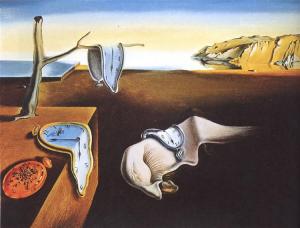
Catholic Social Teaching and Culture
Pronouncements from the United States Conference of Catholic Bishops often appear to those unfamiliar with the church’s social teaching as if they were the work of two very different entities: in favor of looser immigration policies, prudent stewardship of the environment and criminal sentencing reform, yet opposed to abortion, same-sex marriage and divorce. While it is certainly true that the relative weight assigned to each of these issues by individuals within the American episcopate varies, even the most “conservative” and “liberal” bishops are more likely to agree with one another than they are with prominent politicians in either of our two major political parties.
The prospects for a politics informed by the church’s social teaching will be limited, of course, in the absence of an equally thoughtful Catholic culture, one that allows us to escape what Cardinal Robert Sarah calls the “dictatorship of noise.” A Catholic culture worthy of the name would be a catholic one — which is to say, it would be capacious in spirit. It would model virtues such as gregariousness, intellectual curiosity and munificence. It would offer an unapologetic defense of leisure and innocent entertainment by showing us the innate worthiness of everything from public barbecue grills and minor league baseball to regional theater companies and the miracle of hi-fi recording.
Such a culture would hold up to a world of faddishness those immortal words of St. Paul in his Epistle to the Philippians: “Finally, brethren, whatsoever things are true, whatsoever things are honest, whatsoever things are just, whatsoever things are pure, whatsoever things are lovely, whatsoever things are of good report; if there be any virtue, and if there be any praise, think on these things.”
Matthew Walther, Opinion | This Is Why America Needs Catholicism (July 30, 2021) The New York Times (nytimes.com)
Child of Mary
This greatest of mysteries, by far the most staggering and momentous miracle that has ever occurred, the single greatest thing that God has ever done — the eternal, infinite, pure Spirit that is the Divine Nature joining to himself our frail, fragile bodily nature, our DNA and chromosomes, our cells and fluids, tissues and organs and systems — this mystery of mysteries, that we call the Incarnation, took place within Mary’s body.
Not only within her body, but from her body. Like every other unborn child, Jesus’ flesh was knit together in his mother’s womb from substance taken from Mary’s own body. The flesh that hung on the cross for our salvation, the flesh and blood given to us to eat and drink in the Eucharist, took substance within and from the body of the Blessed Virgin Mary.
“She gave milk to our bread,” says St. Augustine. “That which we consecrate is the Body born from the Virgin,” says St. Ambrose in a passage quoted by St. Thomas Aquinas.
Deacon Steven D. Greydanus The Assumption of Mary and the Holy ,Blogs ( National Catholic Register

Children are Signs of Hope
One of the most disturbing films I have ever seen is Children of Men, which is based on P.D. James’ dystopian novel. It is a story of a world in which mass infertility has robbed the entire human population of children, and humanity is a dying race. When I watched the film several years ago, it triggered a visceral reaction. I fought waves of nausea while watching the movie’s muted colors, dark filters, and depiction of complete despair. A world without children is a world in which there is nothing to live for. Elementary schools shut down, then middle schools, then high schools. What need for museums when there will be no one to see the exhibits? What need to create when there is no one to enjoy it? Why develop scientific advancements when they will benefit no one? Why philosophize when there will be no one to pass on our wisdom? The result is a world in total collapse and completely devoid of hope. But then, against all odds, a woman falls pregnant. And in a movingly incarnational moment, a child’s cry piercing the darkness for the first time in decades causes the world to fall silent at the sound. Guns are lowered, hands reach out to touch the miraculous tiny foot of an infant, onlookers drop to their knees in awe. It is the voice of hope.
Haley Stewart The Hope of the Domestic Church (August 17, 2021) Word on Fire Institute Journal
Evangelising Role Playing Games
With the mission of evangelization–bringing the Gospel and Christ to all corners of the globe–I think the tabletop has room for honest conversations about religion and living with faith. After all, a world of magic and fantasy has deities that can be interacted with in a very real sense within the game, as you are imbued with the powers of your god to smite enemies or call upon them to intervene in the most dire circumstances. How similar is the Holy Spirit active in our lives? How much more real can you get than the Real Presence in the Blessed Sacrament of the altar? What more engaging stories exist than those shared within the Gospels?
A world is nothing without its people. Perhaps, drawing from the saints, you might be inspired to become a holy warrior who eschews armor for simple tunics and is a friend to man and animal (reminiscent of St. Francis of Assisi). Perhaps you’re inspired to become a former soldier in the emperor’s army, one who refuses to renounce their faith, becoming a folk hero standing up for their beliefs and slaying the ferocious dragon (like my patron St. George). Maybe you want to astound both your Dungeon Master and your fellow adventurers by basing your character on St. Martha, who according to legend defeated a tarasque (one of the most difficult monsters to fight in all of Dungeons & Dragons!) by displaying a holy symbol and splashing the creature with holy water. Saints can be great models, inspiring the creation of characters with deep and abiding love for God. Saintly characters would certainly lead to unique and lasting interactions between the players at your table, both in and out of the game.
Kurt Crenwelge On a mission to bring Christianity to Dungeons and Dragons (August 6, 2021) Aleteia.org
Everyday Missionaries
We may not believe that what keeps us busy will stand the test of time, but we should undertake all we do as if we did. Everything, after all, is a mission. The jobs we hold, the businesses we build, the families we raise and care for, our cities and towns, our local schools and hospitals and the parishes to which we belong: all these have divine purpose and potential. Everything that fosters our connection with one another fosters our relationship with God. And everything that fosters our relationship with God prompts us to reach out to others. What we do and don’t do matters more than we think. Our efforts may not be grand or celebrated — they may even go unnoticed — but they are not in vain. We are missionaries assigned to this place and time, but part of the great narrative of God’s salvation, his providence, and his love.
–JAYMIE STUART WOLFE Echoes. A lasting mission. (August 20, 2021) The Boston Pilot.com
Hellish Census
Hellish Doubts
As for hell, I don’t believe there isn’t one. I believe that the idea of hell as Catholics have traditionally understood it poses a difficult contradiction to the idea of an all-loving God. The notion that God would make billions of souls out of pure love but would do so knowing the vast majority of them would be damned is…well, it’s incomprehensible to me. So either something about our belief is wrong, or something about my understanding of it is, or maybe it’s all just another kind of mythology and we shouldn’t take any of it too seriously at all.
The only thing that matters is what’s real. If hell is, and it works the way I’ve always been told, then I have to find a way to make some kind of sense out of that. From where I stand right now, I find that very challenging. –Steve Skojec A Tender-Hearted God (Aug 12,2021) The Skojec File
Life Long Learning About Jesus
Jesus’ teachings do not come easily. They demand reflection, prayer and committed lived experience. All of this takes place over a long period of time. The message slowly takes root in our heart. The task of getting to know Jesus is never done. John of the Cross explains it this way:
“There is much to fathom in Christ, for he is like an abundant mine with many recesses of treasures so that however deep individuals may go they never reach the end or bottom, but rather in every recess find new veins with new riches everywhere.” (C.3.7.4)
The more one grapples with Jesus and his message, the more the image of God is changing, becoming more real, more connected to all of one’s life experiences, both good and bad. The Christian way is a process of slowly learning what true love is and who God is.- Tracy O’Sullivan O. Carm,-OUR IMAGE OF GOD-II ~ Praying Alone Together
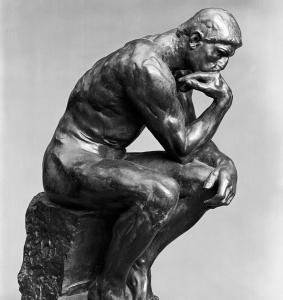
Liturgical Evangelization
Liturgical Language
“Every major religion has a liturgical language that is used for worship (Arabic for Islam, Hebrew for Judaism, Sanskrit for Hinduism, Old Church Slavonic for the [Eastern Orthodox]) and I feel that just the use of a liturgical language, which, with the exception of Arabic, are not usually vernacular languages, reminds you of the importance of what’s going on and sets it apart from your everyday life. I also find the traditional Latin Mass much more aesthetically pleasing, which might be a shallow reason, but nonetheless it makes a difference for me.”
Rebecca Bratten Weiss, The traditional Latin Mass is not the problem with traditionalist communities (August 19, 2021) National Catholic Reporter (ncronline.org)
Liturgical Participation
Heaven is a place of joyful noise, of endless songs of praise.
Perhaps we Catholics need to change our tune and begin practice for the objective of life, and stop Simon Cowelling ourselves into silence. We aren’t here to perform, we’re here to pray. We come to mass, kneel, stand and sit and strike our breasts and make the sign of cross and genuflect in an attempt to attune the body to God. God knows we need physical contact and intimacy to be real, to really worship, and so He gives us His Body and Blood in the Eucharist. He knows we need all our senses to be provoked because we are infinitely distracted stupid sheep who often think we aren’t lost. So He gives us the mass with the prayers, with the songs, with the stillness, with all that is contrary to the world and yet reveals the better reality God wills for us.
Sherry Antonetti, August 22, 2021) If Today You Sing, Your Hearts Will Be Softened Chocolate For Your Brain, (patheos.com)
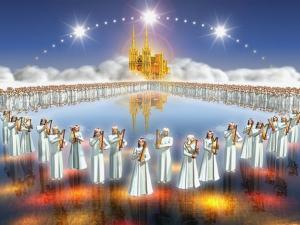
Loving the Sinner
Innumerable saints continue to inspire us, but many of us have been terribly wicked. Still, no one is an accidental creation, every person has been deliberately and willfully made by God in his image and likeness. There is no exclusion. All of us are made in the same manner, and any of us—myself included—might have very well gone down a sinful path. And if it is unreasonable to believe that God would give up and exclude me from his mercy, then this must also be the case for the greatest of sinners?
When we see our brothers and sisters engage in reprehensible sins of any kind, let us not turn away in hatred. Rather, let us remember that they were made by God with the same desire that he made us. Let us share in God’s desire for their redemption. In this way, we will truly understand what Our Lord meant when he said, “there will be more joy in heaven over one sinner who repents than over ninety-nine righteous people who have no need of repentance” (Lk 15:7).· No one is an accidental creation | ( Where Peter Is
Meat on Fridays
In 1966, the U.S. Conference of Catholic Bishops released a pastoral statement advising that U.S. Catholics were allowed to seek alternate forms of penance on Fridays, partly because meat had become a commonplace food in American culture unlike in centuries past. Still, the bishops very explicitly recommended that whenever possible, Catholics should continue to abstain from meat on Fridays throughout the entire liturgical year. One reason for doing so was to ensure that Catholics “preserve a saving and necessary difference from the spirit of the world” (No. 24b). Just as ancient Israel observed dietary restrictions to distinguish it from other nations, the body of Christ ought to omit meat from our meals on Fridays to make us stand out amid the larger culture.
We as Catholics would do well to heed the bishops’ message. It remains true that far too many of us fail to integrate religion into our daily lives, whether out of negligence, embarrassment or fear. Like Peter on the eve of Good Friday, we are more than ready to proclaim that we will give up our lives for Christ. Yet we seem unable to make simple sacrifices in our day-to-day lives to glorify God.
Doug Girardot–It’s time for Catholics to go back to no meat on every Friday (not just during Lent) (August 23, 2021)America Magazine
Mystery
In order to demonstrate the damage done by materialism, we must distinguish between two types of mysteries. The first type vanishes with a satisfactory explanation. Ancient people viewed lightning and eclipses as incomprehensible. Our modern understanding of electromagnetism and astronomy explains these phenomena in a way that leaves no room for doubt. Often, this type of mystery is explained with a “god of the gaps,” a supernatural explanation for the misunderstood natural phenomenon. As our knowledge of these subjects increases, the gods of the gaps die.
–DANIEL SADASIVAN, PHD, Materialism and Mystery (AUGUST 24, 2021) Crisis Magazine.com

Official Church Teaching
Jimmy Akin once quipped that he was going to write a piece on the Church’s OFFICIAL teaching about how to eat a Reese’s because he was constantly getting requests for the Church’s OFFICIAL teaching on a ton of stuff for which the Church has no official teaching.
Some Catholics (and non-Catholics) seem to have the idea that the job of the Magisterium is offer rigid rules and regulations on everything from how to squeeze a toothpaste tube to whether to buy whole kernel or creamed corn.
The Faith says, “We don’t know much, but we do know that there is one God, the Father, the Almighty, maker of heaven and earth… etc.” Beyond the Creed and a couple of other elaborations on it like the Real Presence or the Assumption, the Church leaves it to the wits of human beings to figure out everything from how to write Hamlet to the physics of displacement in ship design to how to create a federal government to how to make a COVID vaccine.
Even most of the teaching she offers about stuff in her wheelhouse–namely, the application of the tradition to the moral life–is largely provisional and prudential. Yes, there are a few Iron Rules: the ends don’t justify the means, you shall not murder, you shall not steal and so forth. But even these require a lot of nuance, as a small amount of imagination or history instantly illustrates. Is war in self-defense murder? Is Jean Valjean guilty of theft? What do you do about a tubal pregnancy? And so forth.
–Mark Shea, Navigating the Church’s Teaching When Bishops Disagree (August 23, 2021) Stumbling Toward Heaven (markpshea.com)
Power of Prayer
Monica spent years weeping over the sins of Augustine and praying for his conversion. It is only fitting that he in turn weeps for the loss of his mother’s companionship and prays for her soul. We should all follow their example. Monica teaches us, in her life and in her death, the importance of persistent prayer. Our prayers are the greatest things we can give our friends and family – before and after death. JOANNIE WATSON Monica, Augustine, and the Power of Prayer —(AUGUST 27, 2021) Integrated Catholic Life™
Preparing For Death
A week later, I again called the priest who had given me the last rites. He was confused at first. “Who is this?” he demanded. When I gave my name a second time, he said, “You were supposed to be dead! I expected the next call would be for the funeral arrangements.” I assured him that I was still alive and, with a bit of reluctance, he agreed to bring me Holy Communion. When he arrived he reaffirmed he was quite surprised by my call. All indications were that I was not going to live. I told him I began to improve the day after he had given me Extreme Unction. His reply was simple and direct: “I’m not surprised.” I expressed my overwhelming gratitude for the countless prayers that were being offered for my intentions and recognized that God’s Will was the only reason I was still alive.
So what is the reason for sharing a description of this most personal event? There are several. First, that readers may not have to undergo a similar experience in order to realize the awfulness of the step into eternity, one that is irreversible, total, absolute. Second, to convey the reality that dying means leaving everything behind–everything and everyone, without exception. Third, to caution readers against the temptation to despair as the devil makes his final assault. Fourth, to remind everyone, including myself, that we must prepare for death, since at the last moment, we may not have the opportunity to do so. In fact, even if we have the time, we may not have the wherewithal to utter the Holy Name of Jesus. (July 3, 2021) Standing on the Edge – Catholicism.org
Value of Human Life
Pope Francis warns against ideologies in his apostolic exhortation Gaudete et Exsultate. He sees a danger of ideology leading some people to separate the demands of the gospel from “their personal relationship with the Lord.” They come to treat Christianity as a political organization and ignore Christ. Social and political work, good as it can be, is no substitute for a relationship with Christ. Likewise, Pope Francis warns against a false prioritizing of social concerns, as if some human lives were inherently more important than others or as if, because we work to address a particular issue, it is the only important issue worth addressing.
He notes, for example, how some Catholics treat the plight of migrants as a “lesser issue” rather than a “grave issue” like abortion and other bioethical questions. Yet, he asks, can’t we realize that this attitude contradicts Jesus’ teaching “when he tells us that in welcoming the stranger, we welcome him”? (Gaudete et Exsultate 102).
Francis’s point is not that all social issues are equally grave, or that abortion and migration are morally equivalent. Rather, he stresses how the same human dignity at stake in bioethical issues, such as abortion, is involved in the lives of migrating people. Both the unborn child and the migrant are human beings with the right to life. We shouldn’t let a specific area of concern, whether it be abortion or migrant issues (or other topics), ideologically distort our valuing of human life in other areas.
-Mark Brumley Immigration and the Consistent Life Ethic (August 24, 2021) Catholic Answers
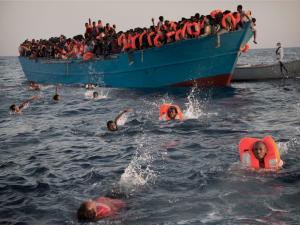
What Truly Matters
None of the outrage and scandal in the news will provide a good foundation for our spiritual lives. They are dreams, substances of nothing which will fade away. Further, the more we engage with things beyond our control as Catholics, allowing rage to consume us, the closer we are to making a shipwreck concerning the faith (I Tim 1:19). As St. Paul told St. Timothy, the things necessary to avoid such a catastrophe are faith and a good conscience (I Tim 1:19). Without faith in Almighty God that He will preserve our souls from ruin, as well a good conscience from frequenting the sources of grace given us by Christ in the Sacraments, why would we bother calling ourselves Catholics?






